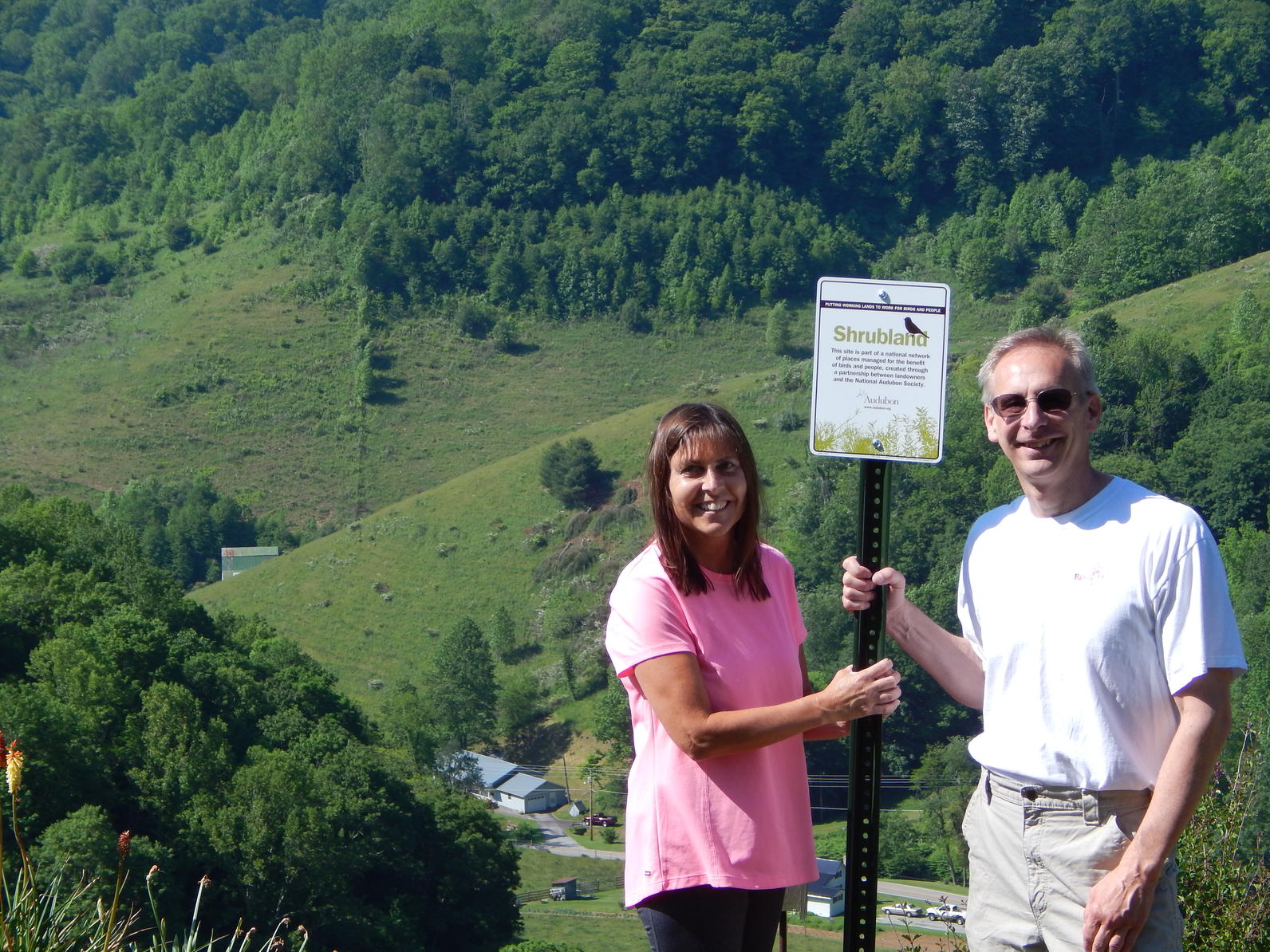The Golden-winged Warbler has suffered one of the steepest population declines of any songbird species in the past 45 years and is currently being considered for listing as an endangered species. Audubon North Carolina staff are working directly with private landowners in Western NC to restore the specialized habitat where Golden-winged Warblers return to breed each summer.
In Watauga County, NC, the Addis family anxiously awaits the arrival of the first Golden-winged Warbler to their hilltop property. This year they are paying special attention to the Southern Appalachian Golden-winged Warbler Best Management Practices information that Audubon NC provided them.

Realizing there were simple steps they could take to maximize their habitat potential for GWWA, they discussed the rotation of the cattle grazing lease as well as discontinued mowing a large part of the hillside below their home. We hope that by next year the pair historically nesting just down the road will successfully expand their bird family.
Through our Putting Working Lands to Work for Birds and People program, Audubon North Carolina is engaging private landowners in focal areas in the western region to manage their land for the Golden-winged Warbler and other forest bird species while maintaining the long-term future uses.
Landowners who qualify receive special signs that signify their efforts to manage their land for forest birds including the Golden-winged Warbler.
Click here to learn more about Golden-winged Warblers and our work to restore habitats where they nest through the Working Lands initiative.




